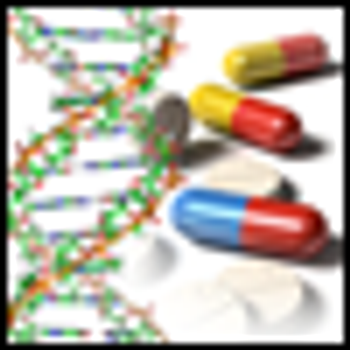
In July, panels sponsored jointly by the National Institute of Aging and the Alzheimer's Association presented controversial proposed guidelines for diagnosing Alzheimer's at three different stages of its progression.

In July, panels sponsored jointly by the National Institute of Aging and the Alzheimer's Association presented controversial proposed guidelines for diagnosing Alzheimer's at three different stages of its progression.

Previously, I have been quite critical of the DSM-5 suggestion to introduce a new diagnosis-- Minor Neurocognitive Disorder--on the grounds that it would create a large false positive problem and would lead to unnecessary worry and cost with no useful intervention.

The basic problem is that the body is extremely complicated and most diseases don't arise from anything resembling simple genetic causes. We are the miraculous result of an exquisitely wrought DNA engineering that has to get trillions and trillions of steps just right. But any super-complicated system will have its occasional chaotic glitch.

Fads in psychiatric diagnosis come and go and have been with us as long as there has been psychiatry. The fads meet a deeply felt need to explain, or at least to label, what would otherwise be unexplainable human suffering and deviance.

Why not define mental disorder just on the presence or absence of the characteristic cluster? Why was it felt to be necessary to also require distress or impairment?

Every month or so, someone (usually very smart and passionate) sends me a detailed proposal for a new diagnostic system offered as an alternative to the jumbled, pedestrian, atheoretical, and purely descriptive method used in DSM.

Professor Hannah Decker, a distinguished historian by trade, has posted a thorough, fair, and sprightly history of the DSM5 controversy. We are all lucky to have her as chronicler.

As an officer of the APA, I was one of the prime movers of the limitations on, and vetting of, potential participants in the preparation of the DSM5.

I sent the letter that begins on page 4 to the Trustees of the APA on April 8, 2010. It contains an urgent plea that the Trustees move immediately to correct the increasingly wayward course of DSM5. The DSM5 Task Force is about to begin a field trial that is a complete mistake:

The recently posted draft of DSM5 makes a seemingly small suggestion that would profoundly affect how grief is handled by psychiatry.

The problems in the preparation of DSM5 have arisen from its unhappy combination of excessive ambition and poor execution. A prime example is the totally unrealistic ambition to provide diagnostic rating scales for each section of DSM5. The goal is to help standardize interviewing in order to increase diagnostic reliability. Surely, it would be nice to have clinicians gather the most pertinent information in a consistent and systematic way.

Time is running out on DSM5 and the mistakes keep piling up. The latest puzzling misstep is the design for the DSM5 field trials. The APA will conduct a remarkably complex and expensive reliability study to determine whether 2 raters can agree on a diagnosis. It will devote enormous resources to answer a question that once mattered greatly but is now of quite limited interest. Meanwhile, DSM5 will perversely avoid the one question that does really count: ie, what will be its likely impact on the rates of psychiatric diagnosis? At least $2.5 million and 1 year later (or possibly 2, if things get delayed as I expect they will), DSM5 will still be flying completely blind on the safety of its proposals.

DSM5 first went wrong because of excessive ambition; then stayed wrong because of its disorganized methods and its lack of caution. Its excessive and elusive ambition was to aim at a “paradigm shift.” Work groups were instructed to think creatively, that everything was on the table. Accordingly, and not surprisingly, they came up with numerous pet suggestions that had in common a wide expansion of the diagnostic system-stretching the ever elastic concept of mental disorder. Their combined suggestions would redefine tens of millions of people who previously were considered normal and hundreds of thousands who were previously considered criminal or delinquent.

The recently posted criteria sets for DSM5 are a mess. The writing is unclear, inconsistent, and imprecise. Unless they are edited and drastically improved, any field testing based on them will be a waste of time, effort, and money- and DSM5 may not be usable.

Nine months ago, Dr. Robert Spitzer and I wrote to alert you that DSM5 had gone badly off track. We warned that its process was unsupervised, poorly planned, secretive, disorganized, and was falling far behind schedule. You took the appropriate steps of appointing an Oversight Committee and delaying for 1 year the target dates for field trials and for the publication of DSM5.

I often get asked if practical consequences should play an important role in DSM5 decisions. It was posed again yesterday in response to my blog "Bipolar II Revisited" which tangentially raised the issue.

The recently posted first draft of DSM-5 has suggested a whole new category of mental disorders called the "Behavioral Addictions." The category would begin life in DSM-5 nested alongside the substance addictions and it would start with just one disorder (gambling).

Sometimes you spot a serious problem and figure out a very well-intended solution, only to discover eventually that your solution created as much trouble as the original problem. The workers on DSM5 have spotted an enormously worrying problem-the wild overdiagnosis of childhood bipolar disorder (BD) which has led to a massive increase in the use of antipsychotic and mood stabilizing medications in children and teenagers.

DSM5 suggests 2 changes that would make it much easier for an adult to get a first time diagnosis of Attention Deficit Disorder (ADD): 1) reducing the number of symptoms required for adults from 6 to 3; and 2) relaxing the requirement that the onset of symptoms must have occurred before age 7 (by allowing the onset to be up to age 12).

The first drafts of DSM5 were posted 2 months ago, allowing the field and the public a first glimpse into what had previously been an inexplicably secretive process. Today is the last day for public comment on these drafts. This is a plea for continued openness and iterative interchange in the next steps in the preparation of DSM5.

DSM5 first went wrong because of excessive ambition; then stayed wrong because of its disorganized methods and its lack of caution. Its excessive and elusive ambition was to aim at a "paradigm shift.”

Mark Twain observed that "the past may not repeat itself, but it sure does rhyme." An unfortunate rhyme in psychiatric history is the recurrence of fad diagnoses. Childhood Bipolar Disorder is the most dangerous current bubble, with a remarkable forty-fold inflation in just one decade.

Avoid Surprises and Unintended Consequences

DSM-IV provides separate categories for Substance Abuse and Substance Dependence. The typical substance abuser is someone who gets into recurrent, but intermittent, trouble as a consequence of recreational binges. This is in contrast to the continuous and compulsive pattern of use that is typical of DSM-IV Substance Dependence.

There are 2 very different methods of describing people with a mental health problem. A typical psychiatrist will give the mental disorder a name. Many psychologists would prefer to give it a number on a rating scale. The first “categorical” approach is the simplest and most natural way people sort things. It is the method used throughout medicine (with just a few exceptions like hypertension). The second “dimensional” approach works best to describe phenomena that are continuous, lacking in clear boundaries, and reducible to numerical measurement.

The proposal for a "Psychosis Risk Syndrome" aims to solve a pressing problem in psychiatry-- the need for early identification and preventive treatment.

A major general problem in the preparation of DSM5 is that the various Work Groups have been given far too little guidance and support. This explains why: 1)most of the criteria sets are written so obscurely and inconsistently; 2) the rationales for change vary so widely in depth and quality across Work Groups,and; 3) so many suggestions that should have no chance at all have made it this far without being tossed.

The recently posted draft of DSM5 makes a seemingly small suggestion that would profoundly impact how grief is handled by psychiatry. It would allow the diagnosis of Major Depression even if the person is grieving immediately after the loss of a loved one. Many people now considered to be experiencing a variation of normal grief would instead get a mental disorder label.

Our country is in the midst of a 15-year "epidemic" of Attention Deficit Disorder (ADD). There are 6 potential causes for the skyrocketting rates of ADD-- but only 5 have been real contributors. The most obvious explanation is by far the least likely -- that the prevalence of attention deficit problems in the general population has actually increased in the last 15 years. Human nature is remarkably constant and slow to change, while diagnostic fads come and go with great rapidity. We don't have more attention deficit than ever before. . . we just label more attentional problems as mental disorder.

This commentary suggests how the research community can be instrumental in improving DSM-V and helping it avoid unintended consequences. According to several converging, anonymous (but I think quite reliable) sources to which I have had access, the draft options for DSM-V will finally be posted between mid-January and mid-February 2010. There will then be just 1 month (until mid-March) for collecting comments. The good news is that the products of a previously closed process will finally be available for wide review and correction. The bad news is that there will be only a brief period allotted for this absolutely crucial input from the field.